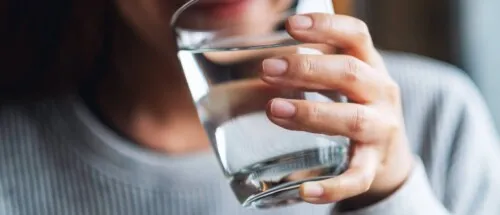Do the cocktails you make at home never taste as good as the ones you get at the bar, even if you follow the recipe exactly as it says? Your water quality affects alcohol and impacts your cocktails more than you think. Whether it’s water added through ice or if you are in the process of home brewing – water quality can take away the enjoyment and aromas of your cocktail or alcoholic beverage.
Hard water impacts nearly 90% of homes in the United States and Canada. Meaning that magnesium, calcium, sulfides, and other contaminants could be running through your plumbing system, affecting your health, cooking, and even your well-deserved cocktail.
What the Professionals Say
Professional mixologists across the world express how vital the quality of water is when crafting a cocktail. Soft water makes liquor smooth, and hard water accentuates the flavors, so how do you find the perfect balance?
Well, several mixologists completely filter the water of contaminants and re-configure the balance of magnesium and calcium to get the perfect texture for their drinks. Unfortunately, configuring the ideal water balance is not always feasible at home. Still, the money spent on alcohol may not be worth it if your water quality is not up to par.
Why Is the Quality of Ice Important?
Ice is an essential component in making drinks. For some, it is the star; for others, it is an asset. Many people order whiskey, bourbon, or scotch on the rocks. People choose this drinking style because as the ice dilutes, it helps the aromas of the spirit shine through and removes the burn of the alcohol as it is drunk.
The benefit of ice dilution is true for various spirits, mixed drinks, and cocktails and is a significant component in how water quality affects alcohol. Hard water containing sulfides or chlorides will directly affect the flavor and aroma of the chosen spirit. So, as the ice melts and dilutes the alcohol, it slowly releases the contaminants into your cocktail.
Specialty Ice Cubes
Clear ice balls have become popular for many as they not only look great in the drink but also dilute the cocktail slower than average ice. Unfortunately, ice will not freeze clear without starting with clean, soft water. As the Tipsy Bartender explains, “If you use tap water, your ice balls will likely be cloudy,” but there are ways to create a clear ice form if filtered water is not accessible.
Boiling water is easy to remove contaminants and create clear ice if you don’t have access to a water filter or an ice ball maker. An essential step in this process is to let the water cool completely before freezing. Otherwise, it can affect the clarity of the ice. Not only does boiling water remove contaminants that affect clear ice, but it also removes other elements that can cause a sour taste and smell in the cocktail.
How Water Quality Affects Home Brewing
Brewing beer at home has increased in popularity over the last few years. Depending on the size and brew style, a starter kit can range from $40 to $250 on average, not including the additional cost of the bottles and each batch of beer needed. Home brewing can be enjoyable but ensuring that your time and money are worthwhile is essential in any process.
When beginning the home brewing process, the water should be filtered and free of contaminants and unpleasant smells. Different contaminants can create other effects on the taste pallet of a beer, including:
- Bacteria can ruin a whole batch
- Calcium can create a lack of nutrients
- Sulfur can emit a rotten egg smell
- Magnesium can cause dryness
In conclusion, your home’s water quality is essential in the chemistry of the home brewing process – and can take your beer to the next level.
Your Personalized Solution
Whether you’re a mixologist or someone who enjoys happy hour at home, water is critical in creating a well-crafted alcoholic beverage. That’s why we offer free water tests customizable to every home’s needs so that any hour can be happy hour with Leaf Home Water Solutions.



